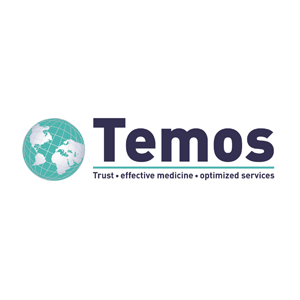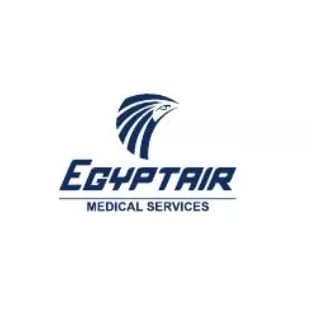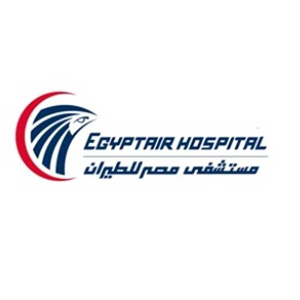Preparing for Cataract Surgery: A Comprehensive Guide to Ensure a Smooth Experience
If you've been diagnosed with cataracts, undergoing cataract surgery can be a transformative experience that significantly improves your vision and overall quality of life. To ensure a stress-free journey through this process, understanding the necessary steps is crucial. In this detailed guide, we'll walk you through each stage of the cataract surgery process, from initial understanding to post-surgery recovery, including cost considerations.
Understanding Cataracts and the Need for Surgery:
Cataracts, a common age-related condition, results in a clouding of the eye's lens, leading to blurred vision. When cataract interfere with daily life, cataract surgery package in eye centre or hospital becomes a viable solution. Recognizing the signs and symptoms prompting the need for eye surgery packages is the first step toward regaining optimal vision and more eye care.
Understanding the Role of Your Eyes in Cataract Surgery:
Before delving into the surgical process, it's essential to appreciate the intricate nature of your eyes. The eyes, remarkable organs providing the gift of sight, may face compromise due to cataracts or presbyopia . Cataract surgery becomes a targeted effort to assess and continue restore clarity and functionality to these vital sensory organs. Understanding the anatomy and physiology of your eyes enhances your appreciation for each step in the cataract surgery journey including prices.
Exploring Package Options for Cataract Surgery:
Cataract surgery often comes with various package options, each contributing to a more informed decision-making process. Packages may encompass different levels of post-operative care, including follow-up appointments, medications, and additional support. Some comprehensive packages even cover the cost of prescription glasses or other vision correction options after the surgery. It's advisable for patients to carefully review the details of each package offered by their eye center or hospital to align with their needs and preferences.
Considering LASIK as a Supplementary Option considering cost:
In some cases, patients may explore LASIK (Laser-Assisted In Situ Keratomileusis) as a supplementary option during cataract surgery. LASIK can address refractive errors like nearsightedness, farsightedness, and astigmatism. While cataract surgery primarily focuses on replacing the clouded lens, LASIK fine-tunes overall vision correction. Some package options may include LASIK as part of a comprehensive vision correction strategy. Discussing these possibilities with your surgeon allows you to make informed decisions about optimizing your vision beyond cataract removal.
By exploring these aspects related to your eyes, package options and pricing, and potential supplementary procedures like LASIK, you can tailor your cataract surgery experience. Each patient is unique, and discussing these considerations with your surgical team ensures a personalized approach that meets your specific needs and preferences. This holistic approach to cataract surgery contributes to a comprehensive and stress-free experience for patients.
Consultation and Pre-Surgery Assessments:
Scheduling a consultation with an experienced ophthalmologist is crucial. During this appointment, your eye surgeon will conduct thorough assessments to determine the specifics of your cataract and overall eye health. Expect measurements, examinations, and discussions about your medical history. Don't hesitate to ask questions or express any concerns you might have at this stage.
Choosing the Right Intraocular Lens (IOL):
One of the key decisions you'll make is choosing the intraocular lens (IOL) package that will replace your natural lens during surgery considering the cost. Your surgeon will discuss different types of IOLs and help you select the one that aligns with your lifestyle and vision goals. Choices range from monofocal lenses, which provide clear vision at a single distance, to multifocal lenses that offer a range of focus.
Preparing for the Day of Surgery:
As the surgery day approaches, you'll receive specific instructions from your surgical team. These may include guidelines for fasting, information about prescribed medications, and details about transportation arrangements. It's essential to follow these instructions diligently to ensure a smooth and safe surgical experience. Take time to relax and manage any pre-surgery nerves, knowing you are in capable hands.
What to Expect During Cataract Surgery:
Cataract surgery is a well-established and routine procedure. During the surgery, you'll be comfortably positioned, and your surgeon includes local anesthesia to ensure you feel no pain. The clouded lens will be replaced with the chosen IOL. The surgery typically takes about 15-20 minutes per eye. Rest assured that your surgical team is highly skilled and will guide you through each step of the process.
Post-Surgery Recovery and Follow-Up Care:
Immediate recovery after cataract surgery is generally quick. You may experience some mild discomfort or irritation, but this is temporary. Your surgeon will prescribe medications to prevent infection and manage any post-operative inflammation. Follow-up appointments are crucial for monitoring your progress and addressing any concerns. Adhering to the recommended post-operative care guidelines for cataract will contribute to a smooth and successful recovery.
Exploring Premium Implant Options to Enhance Distance and Multifocal Vision:
When considering cataract eye surgery package, patients often have the opportunity to explore premium implant options that go beyond standard lenses. Premium implants can provide additional benefits such as improved distance vision and multifocal capabilities. While standard lenses focus on a single distance, premium implants, including multifocal and trifocal options, offer a more comprehensive range of vision. Discussing these premium choices with your doctor allows you to make an informed decision based on your unique visual needs. While there may be additional charges associated with premium implants, many patients find the enhanced visual outcomes well worth the investment.
Understanding Advanced Surgical Techniques to Reduce Incision Size:
Advancements in cataract surgery techniques have led to the development of procedures with smaller incisions, providing numerous benefits for patients. Smaller incisions, often referred to as microincisions, reduce the healing time and the risk of complications. Additionally, these advanced techniques contribute to a more comfortable surgical experience. Discussing these advanced options with your doctor during the pre-surgery consultation allows you to explore the benefits of reduced incision size and understand how it may positively impact your overall treatment and recovery.
Booking a Special Accommodation Package for a Stress-Free Treatment Experience:
Many surgical centers offer special accommodation packages to ensure a stress-free and comfortable treatment experience for patients undergoing cataract surgery. These packages may include amenities such as a private recovery area, personalized care, and additional support services. Some surgical centers even provide a special drape or environment designed for relaxation during the procedure. By inquiring about these special accommodation options when booking your treatment, you can tailor your experience to be as comfortable and stress-free as possible. Your doctor can provide details about these packages, helping you make choices that contribute to a positive and relaxed cataract surgery journey.
What are the 3 types of eye surgery?
There are various types of eye surgeries, each designed to address specific vision issues or conditions. Here are three common types:
LASIK (Laser-Assisted In Situ Keratomileusis):
LASIK package is a popular refractive surgery aimed at correcting common vision problems like nearsightedness (myopia), farsightedness (hyperopia), and astigmatism. During LASIK, a laser is used to reshape the cornea, allowing light entering the eye to be properly focused onto the retina. This outpatient procedure often results in reduced dependency on glasses or contact lenses.
Cataract Surgery:
Cataract surgery package is performed to remove a cloudy lens (cataract) from the eye and replace it with an artificial intraocular lens (IOL). This surgery is typically done on an outpatient basis and has a high success rate. Patients often experience improved vision














0 comments for this post